Bachelor of Science in Broad Field Natural SciencesSchool of Arts and Sciences
In Broad Field Natural Science, you’ll gain a broad understanding of science across the disciplines of Biology, Chemistry, Geoscience and Physics. The curriculum is designed to give you a solid foundation of science content and processes while still allowing you to customize your in-depth exploration in a particular discipline within science and engineering. The Broad Field Natural Science major serves as a starting point for advanced study in the sciences, preparation for professional schools, and combines well with other majors and minors to prepare you for work in fields such as Education, Communications, or Political Science.
This major is recommended for students planning to become secondary (high school) science teachers. Current DPI regulations allow new science teachers to teach all of the various science courses. This major will give you an overview of each of the disciplines, and also an opportunity to focus on a particular area of interest such as:
- Biology concentration
- Chemistry concentration
- Geoscience concentration
- Physics concentration
Madison, WI
On-campus
120
August 25, 2025
Careers in Broad Field Natural Sciences
More resources, options, and opportunities in Greater Madison allows for a greater ability to make your college experience, and your career, as individual as you are. The thriving science and technology business sectors in the area offer opportunities for work and internships throughout the entire year. Opportunities for field and laboratory research are abundant.
Our graduates become engineers, science writers, journalists specializing in science issues, and lawyers or public servants who can intelligently engage with science issues. If you aspire to be a teacher, this degree prepares you to teach across the science disciplines and integrate your learning.
Featured Courses
Geoscience 103 S – Oceans and Atmosphere
The oceans and atmosphere are deeply connected to one another and have a major impact on our way of life. In this course, we will study the physical materials, processes, and features of both, while acknowledging that climate change may be altering their effects on society. Students will consider the nature of change in Earth systems and how humanity is becoming a significant agent of such change. This course makes use of case studies, focusing on real world problems related to climate change, to explore the private and public questions you may face as a private citizen in the future concerning our planet’s oceans and atmosphere. Math Placement Level 2 or prior completion of a MATH course (100-level or higher) is strongly recommended.
Biology 151 ESU – General Ecology and Evolution
This general course in biology welcomes all students, as a General Education course and as a course for science majors. We discuss the nature of science, Mendelian genetics, patterns of inheritance, concepts in ecology and processes of evolution. Lectures and labs apply fundamental concepts to current issues in biology. Students may take this course as their first college biology course. It is recommended that students have Level 2 math placement.
NATS 250 PV – History & Philosophy of Science
This course provides an introduction to the nature of scientific knowledge, the process and products of scientific inquiry, and the philosophical implications of science and its development. Introduces students to philosophical ways of thinking and arguing within the natural sciences and seeks to develop an appreciation of the scientific enterprise. In addition, the course addresses the history of science through the study of notable scientific revolutions, the motivations of scientists, and the exploration of the natural world as a human activity.
Faculty Spotlights
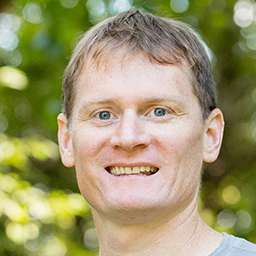
Tim Kuhman
Professor
TKuhman@edgewood.edu
Facilities and Instrumentation
The science departments are in the Sonderegger Science Center, which is well-equipped thanks to the Sonderegger Endowment Fund that allows us to purchase high-quality equipment for teaching and research.
The Geoscience Department has a teaching collection including 400 mineral samples, 400 rock samples, 700 fossils and 200 maps used in many classes. Additional equipment is available for independent research including a soil corer, lapidary wheel, stream tables, groundwater models and basic field supplies. All programs in Geoscience are designed to be flexible to allow you to explore the topics you find interesting. Including field classes and independent projects.
Fabrication Laboratory
Our new Fabrication Laboratory (Fab Lab) provides you access to high-tech equipment including:
- Multiple 3-D printers with different printing capabilities
- A high-powered laser cutter capable of cutting or etching most woods and plastics
- 3D scanner
- Electronic and soldering equipment
- Hand tools and project space
- 2- and 3- dimensional design software
- CNC machine (coming soon)
- Injection molding (coming soon)
The facility provides resources and opportunities for student-directed projects and is open to students from across campus, not just science majors. Workshops and training sessions open to anyone are offered on a regular basis.
Related Programs
-
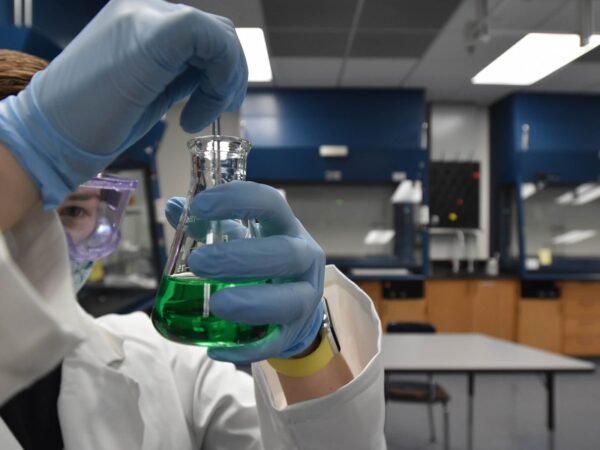
On-campus
Bachelor of Science in Chemistry -
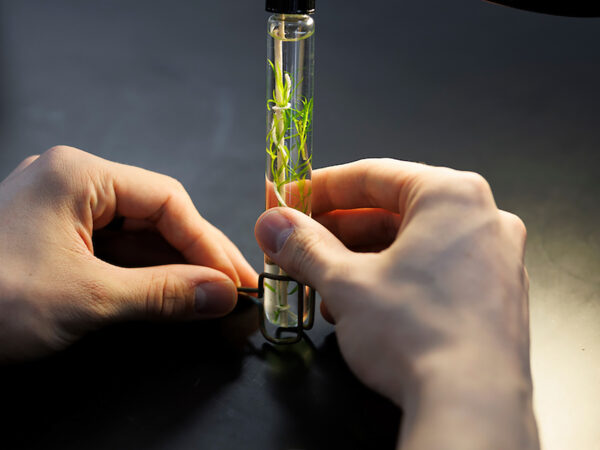
On-campus
Bachelor of Science in Biology -
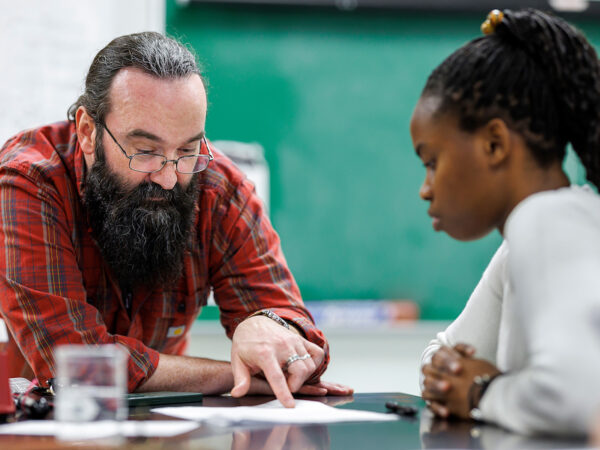
On-campus
Bachelor of Science in Physics
-
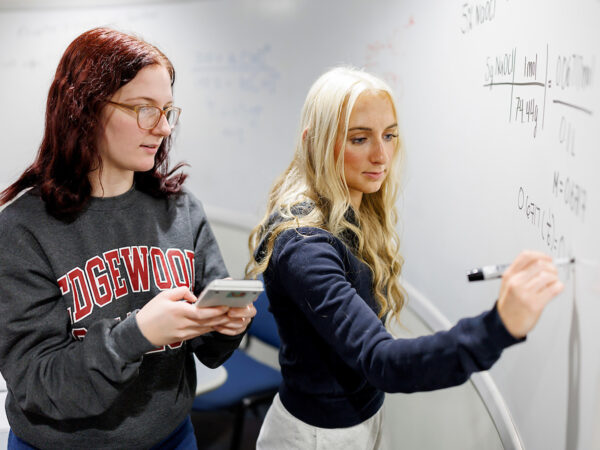
On-campus
Bachelor of Science in Mathematics -
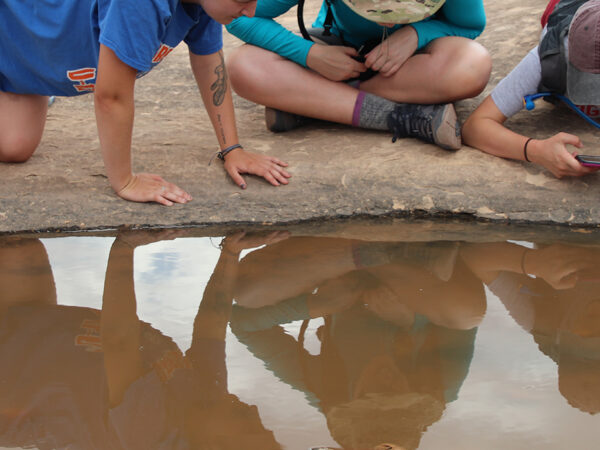
-
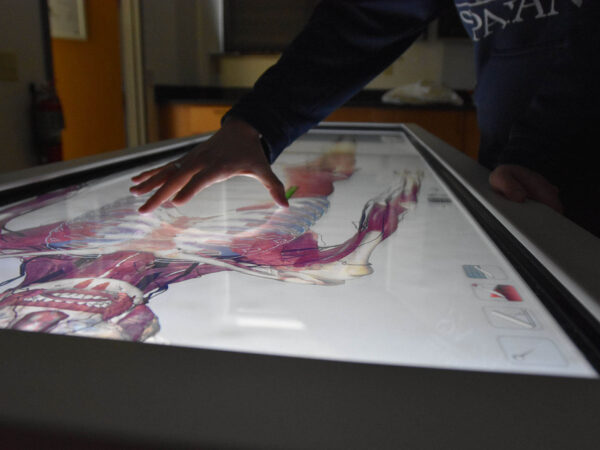
On-campus
Bachelor of Science in Health Sciences
Frequently Asked Questions
What does the process look like for choosing a concentration?
Students will first take a year long introductory sequence of courses in all four science areas (Chemistry, Biology, Physics, and Geoscience). From there, they will specialize in one science area
Does this program have a relationship with Madison College?
Our relationship with Madison College has led to the development of the Broad Field Science with Civil Engineering degree which produces graduates with both broad science knowledge and job-ready engineering skills.
Can this program help me become a science teacher?
For students wishing to become high school science teachers, the Broad Fields Natural Science major is recommended. Choose a concentration in the discipline you most want to teach. You can also consider adding a minor, if you have more than one area of interest.
Students must be licensed to teach science in the state of Wisconsin. At Edgewood, you can earn that teaching license through the Accelerated Secondary Program (ASP). This is a 5th year post-baccalaureate program that includes all of the education coursework you need to earn a teaching license. The credits earned through the ASP program can be applied towards a master’s degree in education.
Students in this program will begin by taking two graduate level courses in the spring of their senior year. (This is a good deal because you are still paying the undergraduate tuition rate!) Additional courses are completed in the Summer and Fall terms, and you are ready to do student teaching the following Spring. Once you complete the student teaching, you will have earned your teaching credentials and can look for a job!
At any time you can return to Edgewood College to complete the remaining 12 credits required for the Master’s Degree. Master’s degree classes are designed to be completed while you are working. Many are online, and others are offered in the evenings/weekends/summer.
Does this program have any community outreach?
The Office of Science Outreach expands the resources and expertise of our science faculty and students from the labs and classrooms in the Sonderegger Science Center out into the community.
Our goals are to share the excitement of discovery, foster understanding of the natural world, improve personal lives through increased knowledge and awareness of science and technology, and support the next generation of scientists and engineers. We host an annual Family Science Night, offer summer science programs for K-12 students and partner with schools and community organizations to ensure that ALL children have the confidence and preparation to pursue careers in STEM fields.